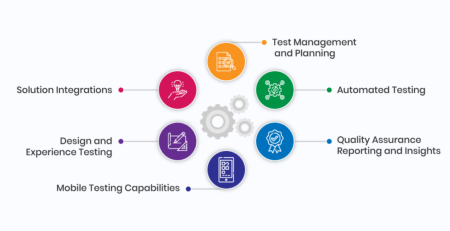Introduction
In the era of artificial intelligence, data annotation services are emerging as a pivotal tool, propelling advancements in diverse fields. This process involves enhancing raw audio data with meaningful labels and descriptions, enabling the training of AI models to comprehend and engage with the world through sound. This article explores the transformative impact of audio annotation on various industries and envisions a future filled with exciting possibilities.
Understanding Audio Annotation
Audio annotation is the process of adding contextual information to audio recordings. This includes speaker identification, spoken word transcription, detection of specific sounds and events, and labeling of emotions. This annotated data serves as the foundation for training AI models for tasks such as speech recognition, language translation, audio search, and music composition.
As the field of audio data annotation services continues to advance, ethical considerations emerge as a critical aspect that requires careful navigation. The process of annotating audio data for AI development brings forth a set of challenges and responsibilities that go beyond technical considerations. It is imperative to explore the ethical dimensions surrounding audio data annotation, ensuring that advancements in AI align with principles of fairness, transparency, and privacy.
Fairness in Audio Data Annotation
Ensuring fairness in audio data annotation involves addressing biases that may be inadvertently introduced during the annotation process. As annotators make subjective decisions, there is a risk of perpetuating existing biases in the training data, impacting the performance of AI models. Striking for diversity and representation in the annotation workforce is crucial to mitigating these biases and fostering inclusivity.
Transparency and Accountability
Transparency is a cornerstone of the ethical use of AI, and audio data annotation is no exception. The origin and methodology of annotations should be transparent to users, developers, and stakeholders. Establishing accountability measures for annotation practices helps build trust and ensures that the data used to train AI models is sourced and annotated ethically.
Privacy Concerns in Audio Annotation
Audio data often contains sensitive information, and annotating such data raises privacy concerns. It is essential to implement robust privacy protocols to protect individuals whose voices are recorded. Anonymization techniques and adherence to data protection regulations become paramount, striking a balance between advancing AI capabilities and respecting individuals’ privacy rights.
Mitigating Bias and Stereotypes
The annotation process may inadvertently reinforce stereotypes or introduce biases based on cultural, gender, or regional factors. Ethical audio data annotation involves implementing guidelines and training for annotators to recognize and mitigate these biases consciously. Regular audits and reviews of annotated data can help identify and rectify potential biases, fostering an environment of continuous improvement.
Ongoing Ethical Oversight
Ethical considerations in audio data annotation are not static; they require ongoing oversight and adaptation. Establishing frameworks for continuous ethical review, involving diverse perspectives, and staying informed about evolving ethical standards in AI development are essential practices. This ensures that the benefits of audio annotation contribute positively to society while minimizing potential harm.
Applications Across Industries
Audio data annotation is instrumental in advancing industries such as healthcare and education. In healthcare, annotated speech data aids in developing AI systems for disease diagnosis based on vocal biomarkers, enhancing early detection and treatment. In education, audio annotation facilitates personalized learning experiences through adaptive feedback and interactive voice-based learning platforms.
Transforming Daily Lives
Beyond specific applications, audio annotation has the potential to revolutionize daily life. Imagine smart home devices responding seamlessly to voice commands or virtual assistants understanding emotions for tailored responses. These examples highlight the transformative power of audio-enabled AI, underscoring the importance of the meticulous work carried out by audio data annotators.
The Emerging Profession of Audio Data Annotation
The escalating demand for high-quality annotated audio data has given rise to a thriving professional field. Audio data annotators analyze recordings, applying meticulous labeling with a deep understanding of language, acoustics, and the intended application. While manual annotation remains crucial for accuracy, technological advancements, such as speech-to-text software and automated annotation tools, are streamlining the process, making it more efficient and cost-effective.
Future Prospects and Challenges
Looking ahead, the future of audio annotation is promising. As AI technology evolves, the demand for annotated audio data will rise, necessitating sophisticated annotation tools and a skilled workforce. This progression implies a world where voice becomes the primary interface for technological interaction. AI-powered devices that understand every word and respond with precision could transform the way we live, work, and interact with our surroundings. Learn more on Wikipedia
Conclusion
In conclusion, audio annotation stands as a critical catalyst for AI innovation, unlocking the potential of sound in diverse applications. The collaboration between human expertise and technological innovation is essential for meeting the increasing demand for annotated audio data. As we embark on this journey, each annotation represents a meticulous step toward a future where the power of sound opens doors to boundless possibilities.













